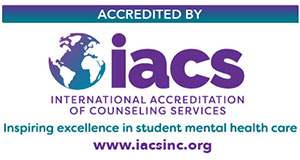First Year of College
New Student on Campus: Tips on Being Successful
Coming to college is a big step. It's one of life's major transition points because, for many, it is the first time we've been so fully responsible for our own daily activities. Nobody is here to look over our shoulders to see if we're doing what they think we ought to be doing. In some ways, that may feel like a relief; in other ways we may suddenly feel like we've been set adrift on an uncharted ocean.
There's a lot be learned over the next few years. Much of that we'll learn in a classroom. We'll also learn many things about successful living in all the things we do that take place outside the classroom and in areas that we may not feel are connected to academics at all. Things like learning to live with roommates, dealing with finances, taking care of household chores, trying out romantic partnerships, interacting with people from other cultures and other beliefs, navigating the sometimes formidable bureaucracy of the University are just a few of the non-academic areas that will demand some of our attention. That will happen at the same time we are coping with academic demands like learning how to study effectively and get work done on time, finding out how to use the libraries, learning how to utilize the services of course instructors and teaching assistants, finding the various help and tutoring services on campus and learning how to study and work with other students.
While all of this is going on, we learn how we respond to stress and how to look for the social an emotional support we need from our friends, family and various campus and off-campus organizations and helping agencies.
This seems like a lot to be dealing with and it is. Fortunately, we don't have to learn it all at once and we don't have to learn it entirely without help. We also don't have to be perfect at it either. This is a time to learn all of these things, so if you don't already know how to cope with all of these things yet, join the club! Hopefully we can all have some fun as we embark on this adventure.
Tips to Making Things Run Smoother:
- Make every effort to go to your classes and be prepared by doing the course assignments. The first sign that you are probably in trouble academically is that you have been missing classes. If you don't understand something or find yourself confused, ask questions. Use the course instructors and teaching assistants as your resources for helping you learn. Being aware of what you don't know is at the heart of learning and can lead you to search for new knowledge and solutions. Academic departments often keep lists of tutors if you need them. There are other resources on campus that can help you with academic problems (e.g., Paul Foster Success Center). Visit the University's home page to find additional services.
- Make out a study schedule, but make it realistic and include time to eat, sleep, and enjoy some leisure activities.
- Make short-term goals for yourself something you want to accomplish today or over the next few days that contribute to your longer term goals so that you don't have to do everything at the last minute.
- Accomplishing something, even a small thing, each day helps you feel like you're making progress.
- Try to be open to new ideas and new experiences. We tend to look at new things in the same way we looked at things in the past. The more we do that, the fewer new things we learn. Try to suspend judgment for at least a little while when faced with something or someone that challenges what you have believed in the past.
- Get involved with academics, social activities, friends, and with yourself.
- The more you are involved in your life, the more you will benefit from it. Of course you should also remember that nobody can do everything all the time and that you have limits. Learn how to say "no" to others when you need to take care of yourself. Use the many excellent support services available to you free of charge as a student. There are academic advisors, health specialists, counselors, residence hall staff, financial aid officers, study skills specialists and many others who want to see you be successful in your time at the University. Don't be afraid to ask them for help. It's why they're there.
- If you have tried to connect with a student organization and you are having difficulty, please call Student Affairs.

